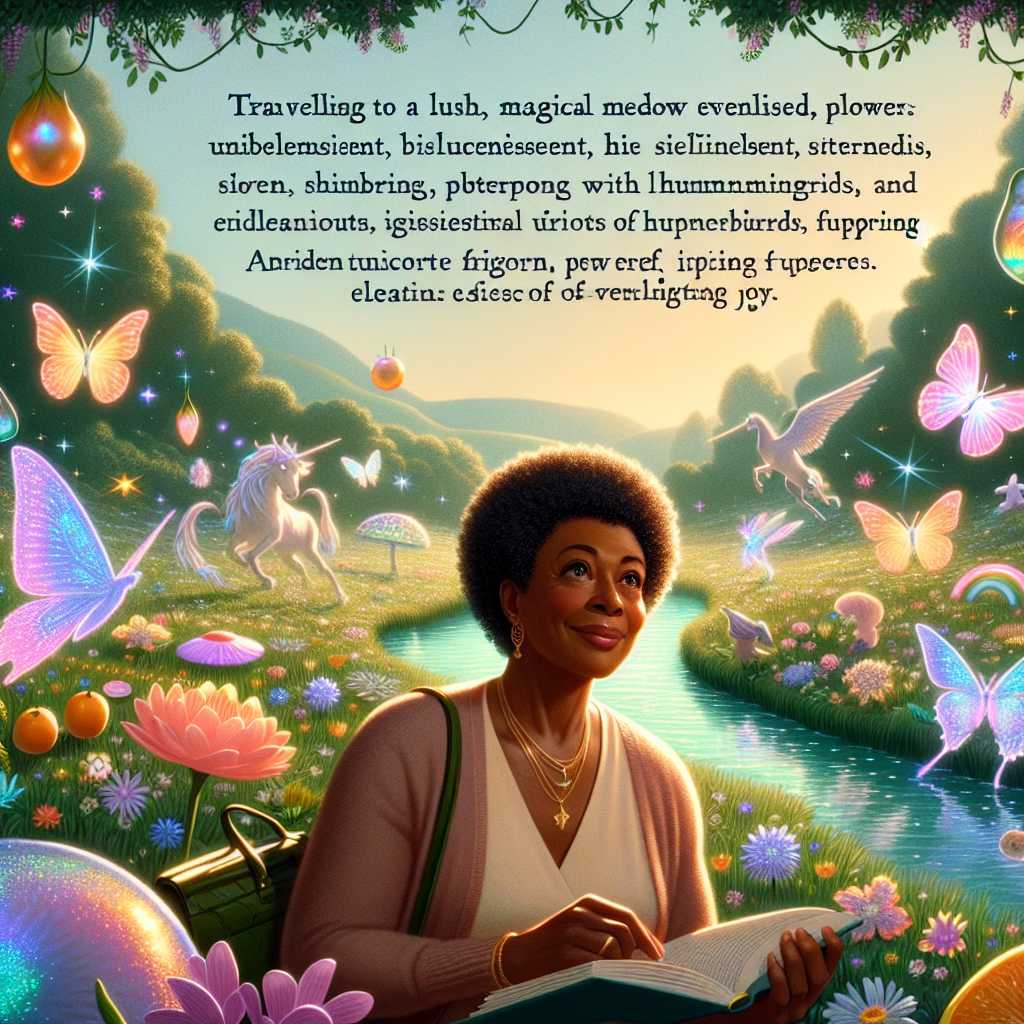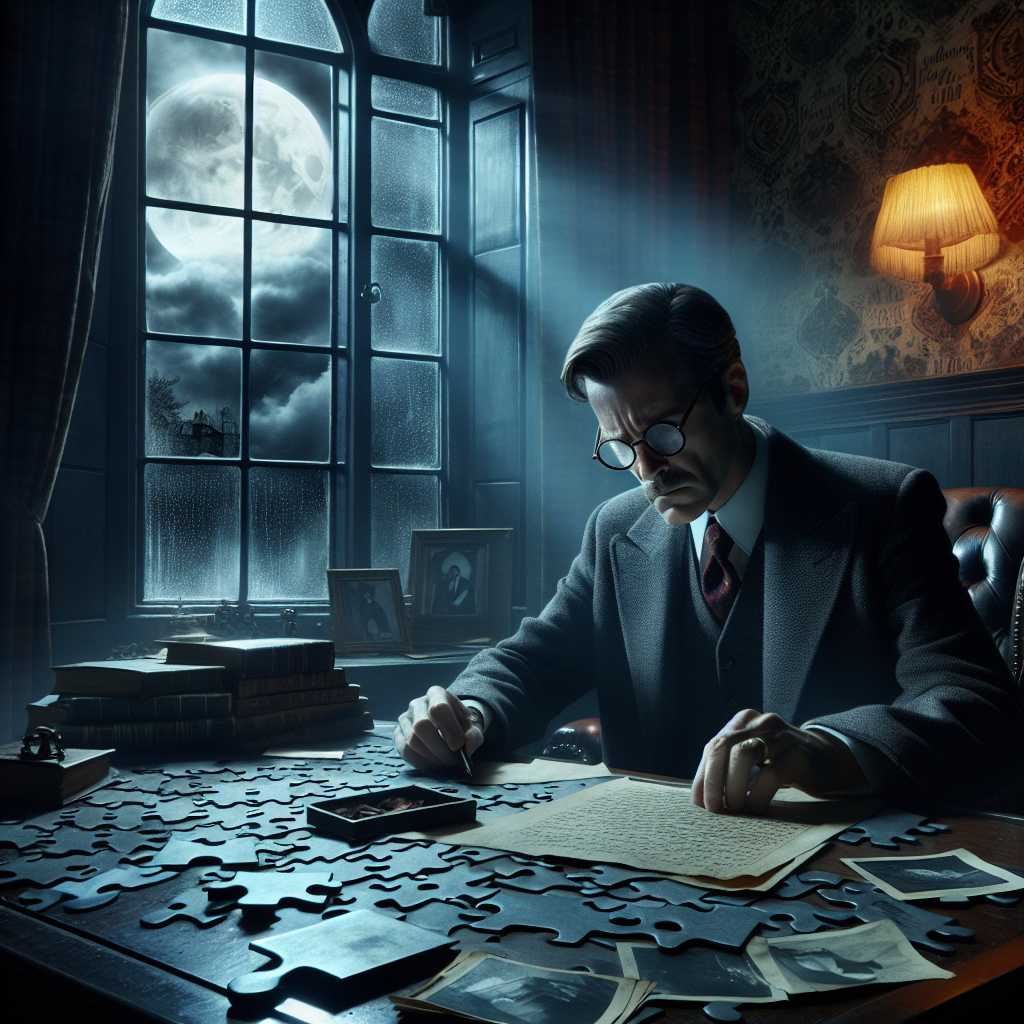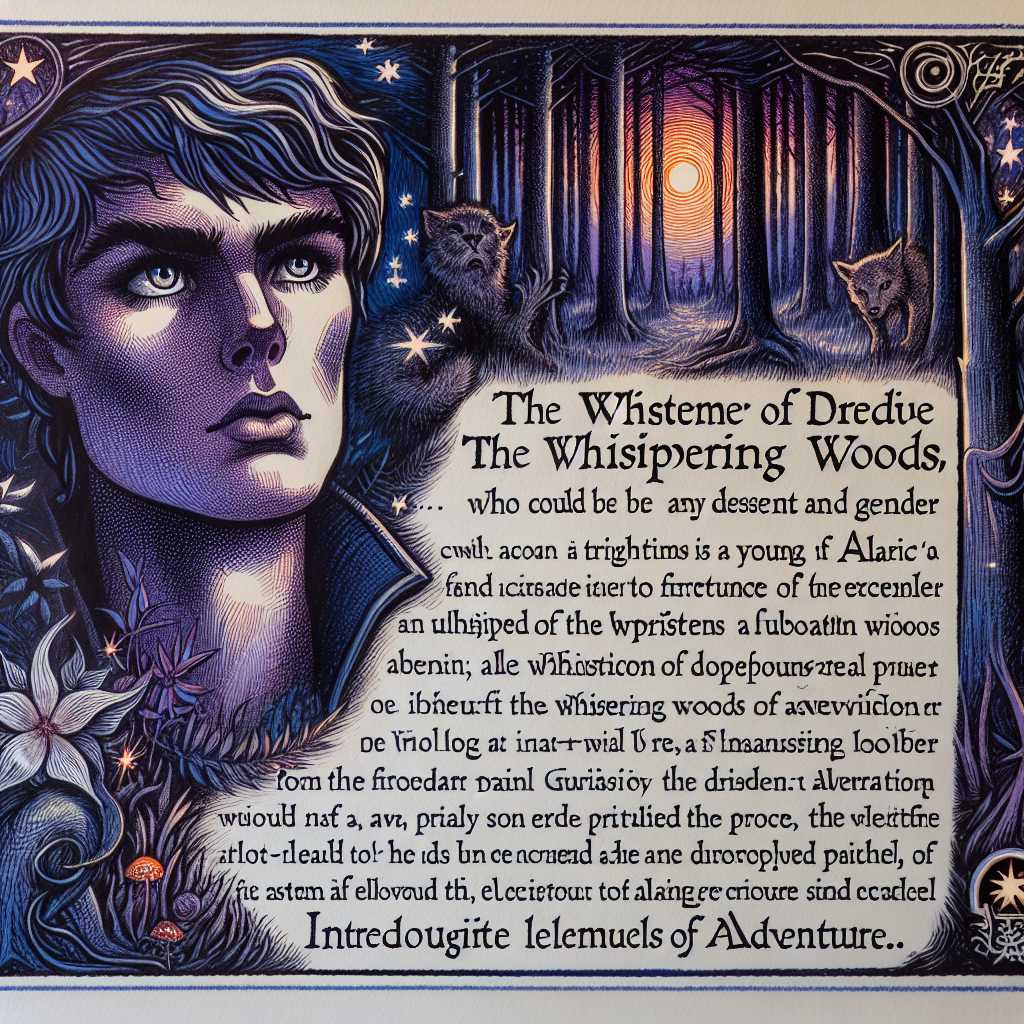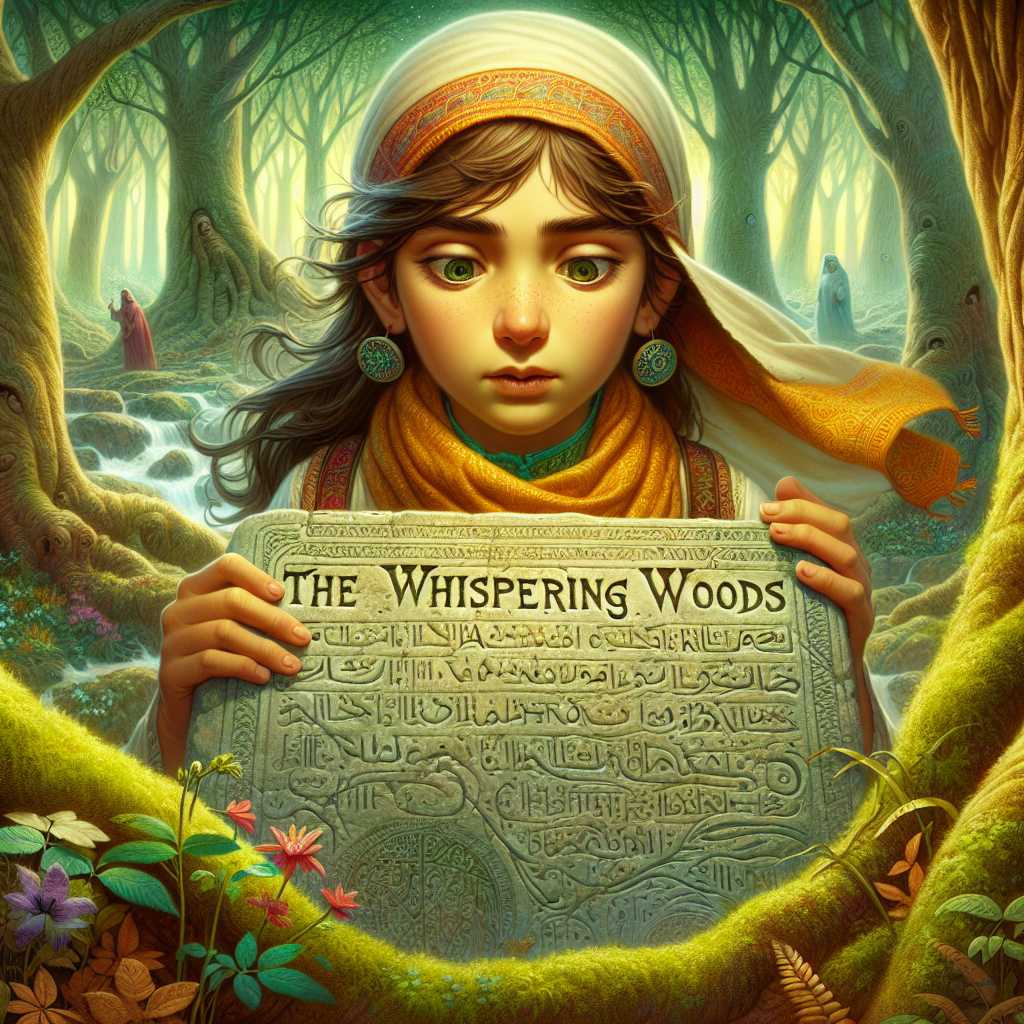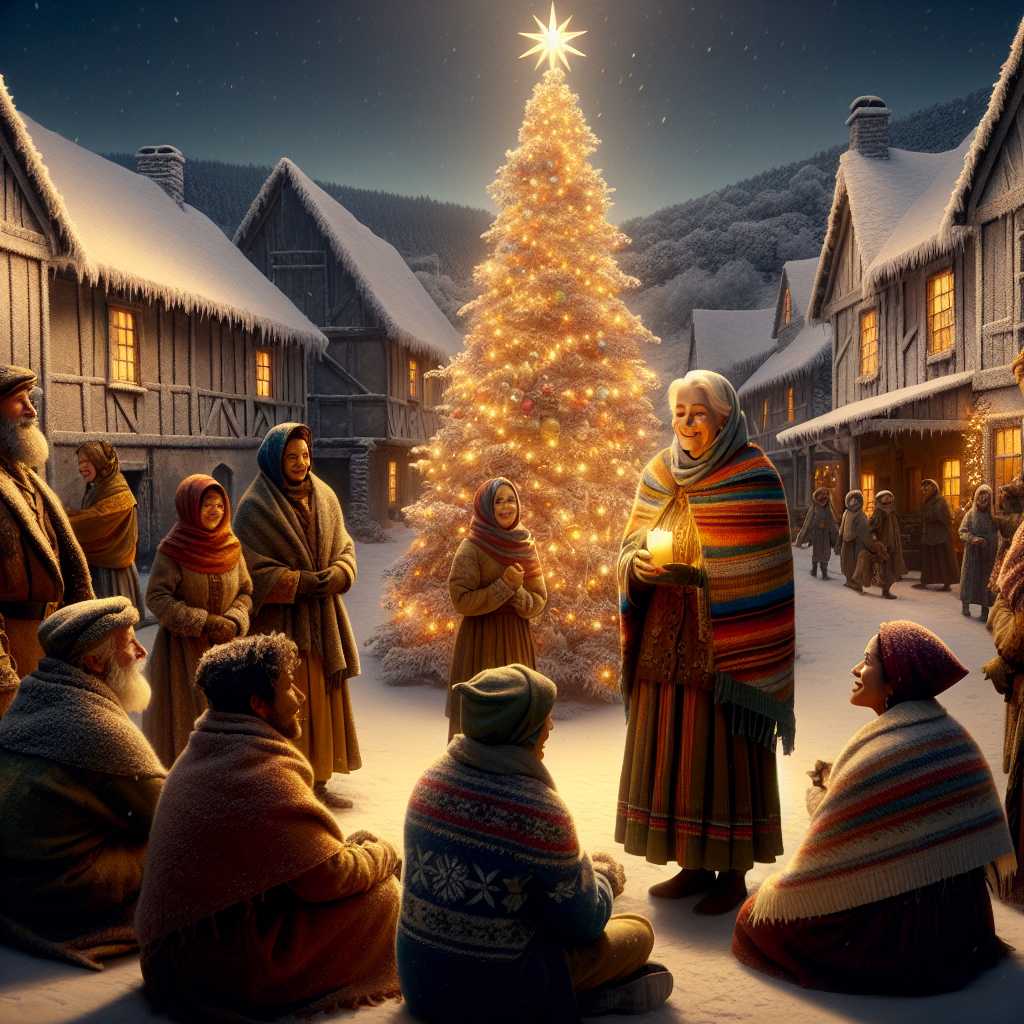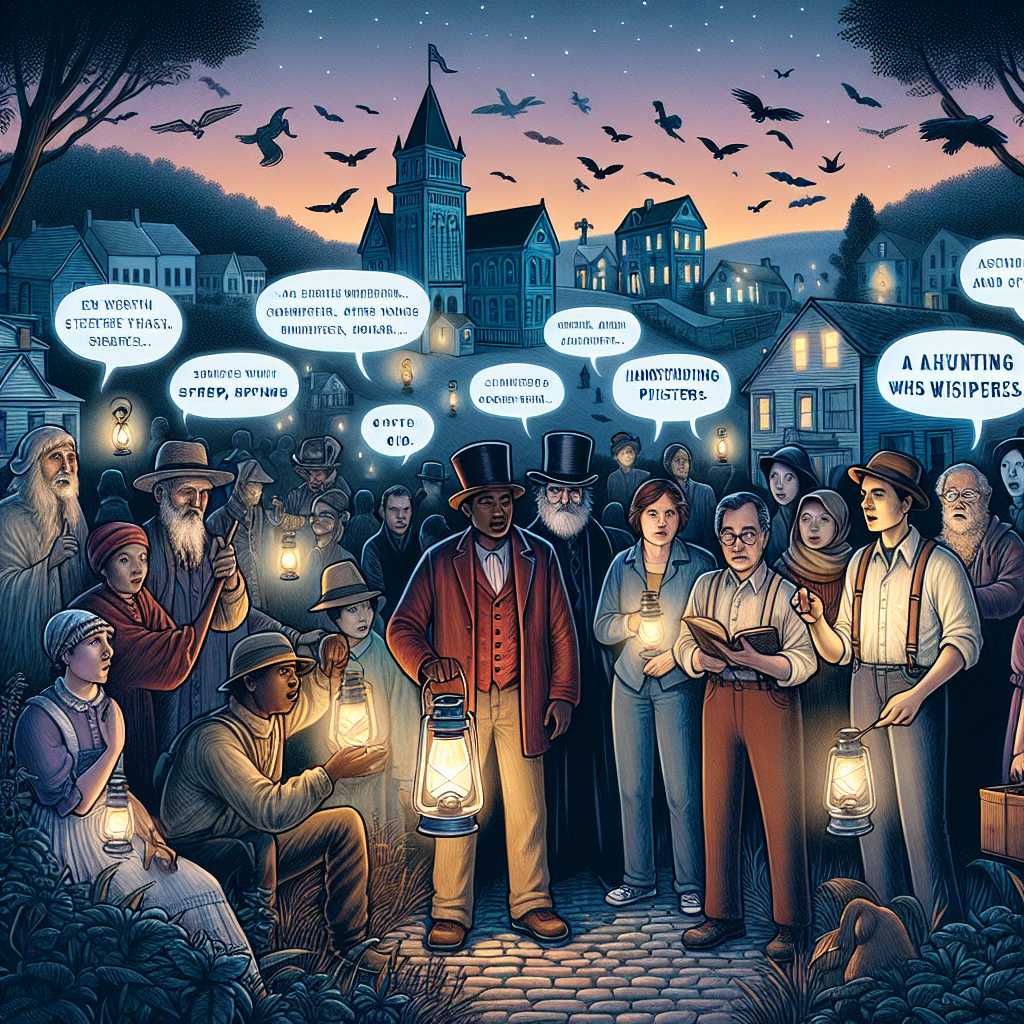
The evening was drawing its inky cloak over the town of Glenridge, and with it came a whisper—a peculiar, chilling whisper that had started to stir unease among the townsfolk. Nestled between dense forests and rugged cliffs, Glenridge was a place where silence usually dominated. But now, an eerie presence seemed to seep through its streets.
“Did you hear it?” Lorraine asked George while they sat in the dimly-lit kitchen of their century-old house. The room was filled with the aroma of freshly brewed tea mixed with a hint of apprehension.
George, a stout man with years reflecting in the wrinkles etched across his forehead, merely shrugged. “Nothing but rumors, Lorraine. You know how people talk.” He tried to sound reassuring, but there was a tremble in his voice that betrayed his unease.
The whispering had begun two weeks ago. Night by night, unfurling like an insidious fog, each evening brought with it an almost ghostly melody—soft, barely discernible, yet undeniable. Those who were particularly attuned claimed they heard their names being called, spoken with a familiarity that was unsettling.
Bold tales spread through the town like wildfire, drawing curious visitors and journalists. Headlines spoke of ghosts, mysterious apparitions, and lost souls searching for closure. Yet to those who lived there, the whispers were far too real—and far too close.
In the dead of night, when the wind turned still, the townsfolk locked their doors, drawn curtains tightly, and sometimes could be seen peering nervously through the windowpanes. Glenridge had become a town veiled in fear.
One man, however, was determined to uncover the truth. Professor Theodore Blake, a seasoned historian with a knack for solving mysteries of the past, arrived in Glenridge on a particularly fog-laden evening. His keen interest in folklore had drawn him here, but it was the whispers themselves that ignited a deeper curiosity.
“If whispers can shroud a town in fear, then perhaps they can also reveal lost truths,” Blake pondered as he tread lightly upon the cobbled streets, absorbing the atmosphere like a sponge.
The professor set up temporary residence in the town’s quaint, but mostly forgotten inn. During the day, he scoured the town’s archives, unraveling scrolls and forgotten ledgers. By night, he prowled through the town—his ears tuned to the spectral orchestra that played beyond the realms of the ordinary.
It was during one such night, as the moon watched vigilantly from behind a veil of clouds, that Blake encountered an old cemetery situated on the town’s fringes. The rusty gate creaked ominously as he pushed through, guided by the whispers that grew stronger the further he ventured.
Among the weathered gravestones and tangled vines, he found the center of the whispers—a neglected mausoleum covered in ivy and shadows. The whispers crescendoed here, each note a cipher begging to be deciphered.
The mausoleum stood as a relic of Glenridge’s forgotten past. Engravings weathered with time, and yet, Blake’s trained eye caught sight of something peculiar about the inscriptions on its walls—a story told in antiquated symbols.
“They died here,” Blake whispered to himself, tracing a finger over a particularly prominent carving. The symbols chronicled a tragic event in Glenridge’s history—a landslide that buried a section of the town many years ago. The whispers, it seemed, were echoes of those voices unjustly silenced.
Determined more than ever, Blake followed the tale that the mausoleum told. His discovery led him to old newspaper clippings and personal journals buried deep within the town’s library. The tragedy had indeed happened, but the town had chosen to forget, the victims considered better left unspoken about.
“But why return now?”
Blake pondered this question as he pieced together the past. Then, it dawned on him—an anniversary of sorts. The whispers weren’t cries of sorrow; they were calls for remembrance—stories yearning to be told, graves longing for flowers in their honor.
Armed with this revelation, Blake reached out to the townsfolk, sharing his findings. It took time and persuasion, but the truth had its own compelling power. Glenridge slowly opened its collective heart, choosing to honor the lost rather than fear their whispers.
And so, a memorial was erected, and lanterns of light cast away the darkness, each glow an acknowledgment of a life once lived. People gathered, not in fear, but in solidarity, resonating with the whispers that now seemed like long-forgotten friends singing a different tune.
As the years went by, Glenridge became known not for its whispers, but for its resilience. The town revived not just its history but its spirit. Professor Blake, with his heart full of stories and satisfaction, left Glenridge—knowing that the shadows now whisper tales only of peace.
And thus, the whispers faded, like the last notes of a haunting lullaby, leaving Glenridge basking in tranquility, where reminders of the past harmonized with the hopes of the future.




